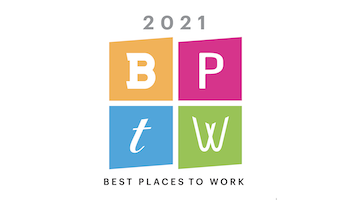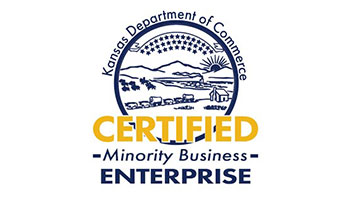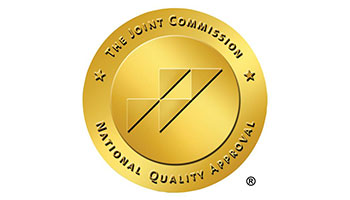Travel nursing can be an exciting career for healthcare professionals who enjoy exploring new places and meeting new people. However, figuring out how to become a travel nurse can be confusing. So, if you feel like you’re ready to begin your new adventure, but just don’t know where to start, we’ve got your back.
The first steps are simple: obtain education and experience.
Education:
To become a travel nurse, you first have to be a nurse. Earn your ASN (Associate of Science in Nursing) or BSN (Bachelors of Science in Nursing) degree, and then pass the NCLEX. If you live in a Nursing Licensure Compact state, and wish to venture outside of your home state when you begin travel nursing, you should apply for a compact license. However, if your state is not apart of the NLC, you’ll just apply for a license in the state you want to work in.
Once you officially become a registered nurse, it’s just a matter of gaining experience.
Experience:
As a travel nurse, you’re expected to be able to jump in and start right away. Because of this, most hospitals require 2 years of experience in the specialty you wish to work in. Your work experience will affect which specific jobs you qualify for as a travel nurse. Keep in mind that hospitals are always looking to hire experienced, in-demand specialties, with specific certifications. For example, Basic Life Support (BLS) and Advanced Cardiac Life Support (ACLS).
So how do you start the traveling part?
1. Find a travel nurse staffing agency
First things first, you need to find an agency that aligns with your travel nursing goals. There are five categories you can look at when deciding which organization you want to start working with:
- Reviews and accolades
- Growth opportunities
- Assignments offered
- Available benefits
- Level of support
Once you choose your perfect staffing company, all you have to do is apply. With Ethos, that means you’ll visit our website, www.ethosmedicalstaffing.com, click on “apply,” and start building your profile. This will include attaching items such as, references, certifications, and your resume.
2. Start working with a recruiter
Once you’ve applied to your chosen staffing company, you’ll be assigned to a recruiter.
Recruiters will take into consideration what you’re looking for (preferred shift, location, pay) to find assignments that fit your specified requirements. They’ll also work closely with hospitals to help advocate for your demands. Your recruiter will become a lifeline during your travel nursing journey, so it’s important that you feel confident with who you’re matched with.
If you’re struggling with your assigned recruiter, you can always request to work with someone else within the company.
3. Pick an assignment (or two)
When picking an assignment, you should first decide what you’re traveling for: money, location, experiences, proximity to home, etc. Your reason for starting will impact what assignments you take on. For example, if you’re traveling for money, you may want to stay away from states that have a high cost of living; but, if you’re traveling for location, that may not factor into your decision.
Once you’ve found an assignment (or two) that you’re excited about, your recruiter will submit you for the position. You’ll either receive an automatic offer or an interview request.
4. Sign a contract
Once given an offer, you’ll receive a *contract. You do not have to accept whatever contracts your travel nurse agency brings you. You can negotiate specific requests (like taking time off, floating, etc.) with your recruiter. If the hospital agrees to these terms, they need to be found on the contract. If they are not on the contract, the facility does not have to honor it, so make sure you read through everything before signing.
*A travel nursing contract outlines the terms and conditions for working at your chosen facility. It should include items like pay, benefits, stipends, policies, and more.
5. Submit documents
Every hospital will have it’s own paperwork to complete and submit before you’re cleared to start work. Generally, these documents consist of:
- Health documentation
- Background check
- Certifications
- Competency exams
- I-9 documents
If this seems like a lot, don’t worry. You’ll work with a credentialing specialist who will help you finalize these tasks in a timely manner (about 2 weeks).
6. Find housing and start your adventure
Once you’re cleared to start, you’ll need to find housing in your new location. Travel nurses receive tax-free stipends to use towards the cost of living. So, just set a reasonable budget based on your location and pay, and start looking! A few places you can browse to find affordable and temporary housing include: Facebook groups, Airbnb, and Furnished Finder.
You may also want to take some time to prepare for your new environment. This can include researching things to do in town, the local community, the closest pharmacy, etc. Whatever will help you feel the most prepared for day one of your adventure.
Overall, this may seem like an overwhelming process, but by following these steps, you can set yourself up for success and enjoy a fulfilling career as a travel nurse. If you’re looking to start travel nursing, Ethos Medical Staffing can help. From day one, to day 365, we’ll be there every step of the way.
Scared to travel alone? Refer a registered nurse to Ethos Medical Staffing and you’ll both get $600 (as well as a travel buddy to explore with!) Contact us today to learn more!









